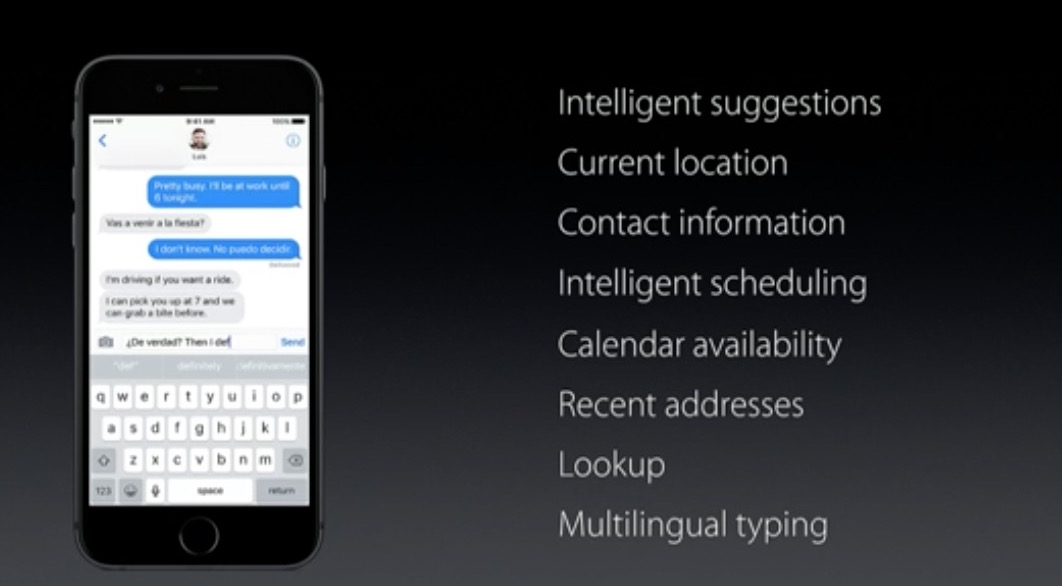iOS 10 and macOS Sierra tap into an interesting technology, called Differential Privacy, which makes possible data collection from a large number of users without compromising individual user’s security and privacy. Re/code has now learned from Apple that Differential Privacy will be opt-in only, meaning privacy-minded folks won’t be required to use the feature unless they specifically want to.
Bottom line: Apple won’t collect your data to make its services a lot smarter unless you specifically let it.
“Apple says it is not using iOS users’ cloud-stored photos to power the image recognition features in iOS 10, instead relying on other data sets to train its algorithms,” writes Re/code. As a result, the facial recognition feature inside the Photos app on iOS 10 and macOS Sierra must index locally stored photos separately on each device.
For those wondering, Differential Privacy is a relatively unproven technique which hasn’t been used to boost Apple’s services before iOS 10 and macOS Sierra.
Additionally, Apple reiterated to the publication that Differential Privacy will be limited at launch to the following four specific use cases:
- New words that users add to their local dictionaries
- Emojis typed by the user so that Apple can suggest emoji replacements
- Deep links used inside apps, provided they are marked for public indexing
- Look Up Hints within Notes
Apple has acknowledged as much in the official iOS 10 and macOS Sierra press releases, but this marks the first time we have it on record that Differential Privacy is in fact going to be an opt-in for end-users.
“Apple will also continue to do a lot of its predictive work on the device, something it started with the proactive features in iOS 9,” writes the publication. “This work doesn’t tap the cloud for analysis, nor is the data shared using differential privacy”.
Differential Privacy will begin crowdsourcing data from users when iOS 10 and macOS Sierra launch for public consumption this fall.
Source: Re/code
